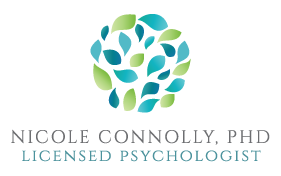Mental Health Awareness Month
Since 1949, May has been designated as "Mental Health Awareness Month" here in the US. The designation was originally passed by Congress to help improve public awareness of conditions such as depression, bipolar disorder, and schizophrenia and to help reduce the stigma surrounding mental illness.
As the DSM-5 is set for release later this month, even more attention will likely be paid to issues of diagnosis and labeling of different mental health conditions. While labels and diagnoses do have their use for improving communication among professionals, on another level, the specific label doesn't matter.Ultimately, the common goal of any psychological treatment or therapy is improving mental health and helping the person live a full, satisfying, and productive life. In fact, I think everyone can benefit from taking some time to evaluate our own self-care and identify ways to make improvements in this area.
Prioritizing our own mental health can often be a challenge. In our fast-paced society, it can be difficult to find a few minutes for reflection in the middle of career, family, and other demands on our time.
Even if you find yourself crunched for time, here are five simple things you can do right now to to help boost your mental health:
1) Take a walk - Research has shown that moderate amounts of exercise can be as effective as antidepressant medications in boosting mood. Exercise doesn't have to involve expensive gym memberships or elaborate training routines. Something as simple as taking a walk through your neighborhood can have immediate benefits to your mood and well-being.
2) Meditate - Recent research also has shown that regular meditation practice has measurable effects on the brain. Meditation is something that can be done as part of your individual religious practices or it can be done outside of a particular spiritual belief system. Mindfulness meditation is one strategy that involves focusing awareness on the present. Religious individuals may find that they benefit from contemplative prayer or focusing on specific scriptures with meaning to them.
3) Do something you enjoy - When researchers have looked at cognitive behavioral therapy for depression, one interesting finding is that much of the benefit of therapy can be attributed to a technique called "pleasurable activity scheduling." It's as simple as it sounds - scheduling and pushing yourself to do fun things can improve your mood over time. Even if you don't feel like reading a magazine or participating in your hobbies, just getting out and doing something can have benefits for your mental health.
4) Write a to-do list - If you're someone whose stress comes from the laundry list of things that need to be done, the simple act of writing it all down in a list can be just as effective as actually getting it all done as far as your brain is concerned. Once you have it all down, pick one small step you can do right now to progress toward the goal and enjoy the feeling of accomplishment.
5) Talk to someone - Reaching out to a friend or loved one can also have positive effects on your mood and well-being. If you feel that you lack support in this area, finding a therapist you like and trust can help with bridging the gap.

